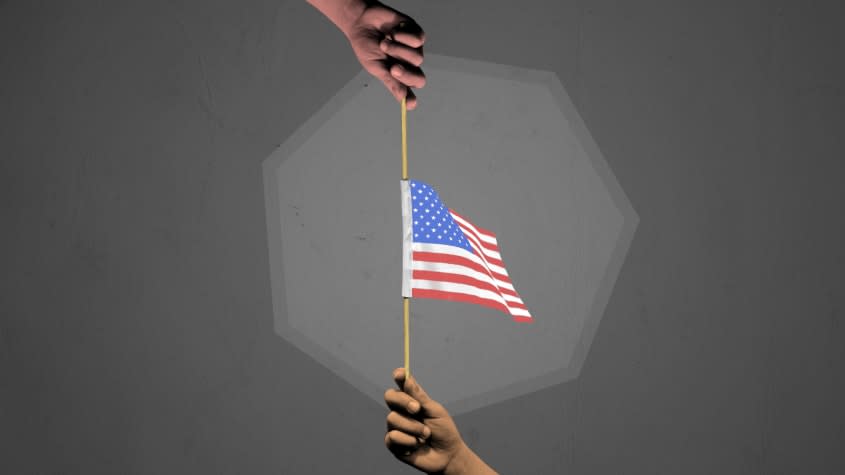Are Republicans the only ones abandoning democracy?

- Oops!Something went wrong.Please try again later.
- Oops!Something went wrong.Please try again later.
The best opinion columns don't aim to win an argument. They inspire fresh thinking.
Judged by that standard, Ross Douthat's latest column in The New York Times is a great one. Taking off from the conventional wisdom contained in a quote from former Obama White House speechwriter Ben Rhodes — that one of America's two major parties "no longer accepts democracy" — Douthat goes on to show how this idea simplifies and distorts a more complex reality.
Turning first to the right, Douthat acknowledges that skepticism about mass democracy has deep roots in several of its constituent factions, including blue-blood defenders of aristocratic privileges, libertarians suspicious of popular majorities infringing individual rights, opponents of ethnically based urban machine politics (including their well-documented historic willingness to engage in election fraud, as at the notorious Tammany Hall), and racist supporters of white privileges.
Yet Douthat notes that the modern right includes pro-democracy strands as well, growing out of Richard Nixon's and Ronald Reagan's landslide victories as much as the ideological conviction that the post-Reaganite defense of traditional morals, capitalist growth, and a strong national defense represents the true sentiments of the American majority.
Viewing former President Donald Trump's effort to overturn the 2020 election against the backdrop of this intricate constellation of views, Douthat asserts that Trump's lies should be understood as "a way to reconcile the two competing tendencies within conservatism, the intellectual right's skepticism of mass democracy and comfort with countermajoritarian institutions with the populist right's small-d democratic self-image."
That's illuminating, reminding us that however delusional the conviction was, Trump justified his coupish moves in the name of democracy, claiming that in reality he really did prevail in the election. Only the ruthlessness and corruption of his opponents, he said, made it seem otherwise.
Having complicated the conservative side of the story, Douthat then turns to progressives, showing how their unconditional defense of democratic norms and ideals sits uneasily with an equally firm conviction that in broad areas of political life credentialed experts ought to be empowered to make decisions, even (or especially) when they countermand majority opinion.
Some will say Douthat goes too easy on the Trumpified Republican Party, excusing its unconstitutional power grab and downplaying the distinctive threat it still poses to the American polity. Such critics have a point, but they miss the real value in Douthat's column, which can be found in its provocative reframing of familiar categories and assumptions.
The column made me think. And that's more than I can say about most examples of opinion journalism these days.
You may also like
Trudeau flees as trucker convoy enters Ottawa

